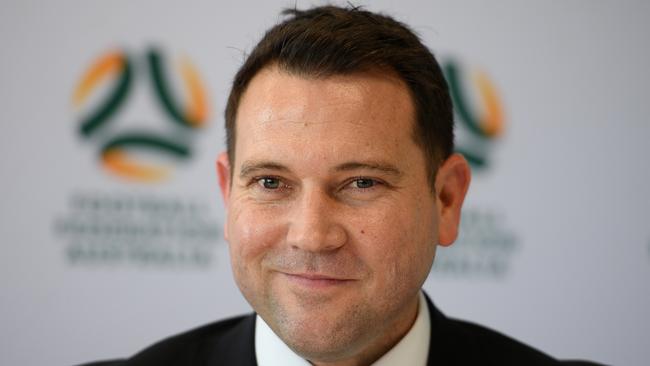Clock ticking on talks over pay deal to change A-League future as contracts expire in just 10 weeks
With players’ contracts due to expire in 10 weeks and the 12 A-League clubs struggling to agree on a common position, time is of the essence to get a new collective bargaining agreement over the line.

A-League
Don't miss out on the headlines from A-League. Followed categories will be added to My News.
Senior figures have warned that talks over a new money-sharing deal for the A-League’s clubs and players could determine the future of the competition.
Months of negotiations over a new collective bargaining agreement are heating up, with players’ contracts due to expire in 10 weeks time and no structure in place beyond that for a salary cap, squad sizes and fundamentally how the newly independent A-League divvies up a central pot of cash for the first time.
The growing sense of urgency was reflected this week in the appointment of four club owners to a committee to be part of the negotiations with the players’ association (PFA) over what one insider called the whole dollar basis of the competition.
Watch every Hyundai A-League game LIVE & On-Demand on KAYO. New to Kayo? Get your 14-day free trial & start streaming instantly >

That follows criticism from senior observers that the 12 clubs couldn’t agree on a common position among themselves, let alone negotiate with other parties, since winning effective control of the competition from the grip of Football Federation Australia.
At a lengthy club owners meeting in Sydney last week, News Corp Australia has been told that former EPL boss Richard Scudamore – brought in as a consultant to help the clubs – told the owners bluntly that they had to get on with making decisions, after watching them argue at cross-purposes for several hours.
It’s understood that new FFA CEO James Johnson echoed those sentiments at the same meeting, urging the clubs to move faster on executing their five-year strategy for the competition rather than debating every element of it.
The new committee is in response to widespread perception that the lack of a power structure has blocked the league from making progress.
“No one knows who’s in charge because there has been no one in charge,” said one figure involved in the talks.
“(Head of A-League) Greg O’Rourke has had to answer to all 12 owners, making it hard to get anything done.”

Part of the problem is that the exact amount of money the independent A-League will be given is still being decided.
Some owners have demanded to effectively keep it all, in lieu of losses made in previous years, while others have argued for a more rational allocation of extra funds to include the players and into centralised marketing campaigns.
The PFA, meanwhile, says it wants to ensure the economics of the competition are fundamentally sound, rather than simply make a cashgrab for its members.
“What’s at stake here is not simply winning an extra $100,000 here or there, it’s about recasting the whole economic model so that everyone can thrive,” said PFA CEO John Didulica.
“We’ve got a three-year runway essentially (until the current TV deal expires) to make the A-League work financially. It’s not simply about some sort of salary cap, there are lots of connected parts to work through.”
PFA officials have been on a tour of the clubs, explaining to their members how delicate the state of the competition is currently, and several figures in club land have praised the sense of realism in talks.

But so far that has still not led to any concrete agreements. With no confirmation yet of what the cap will be next season, or how it will be structured, some clubs have gambled on it being roughly similar to this campaign and re-signed players.
Others have put recruitment on hold pending potentially revolutionary moves like putting all foreigners outside of the cap.
